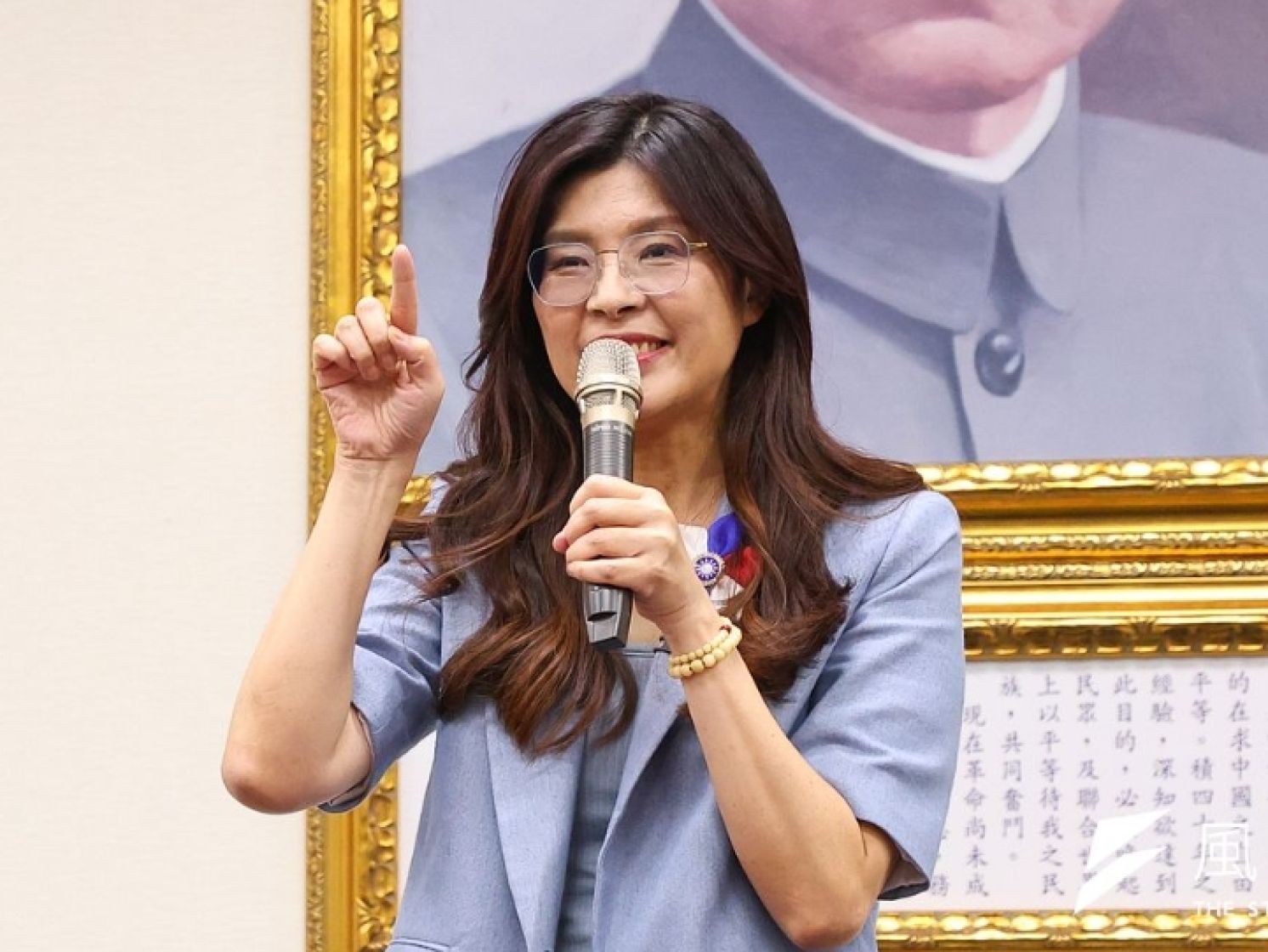
KMT Chairmanship Election Marks Generational Handover
United Daily News Editorial, October 19, 2025
The most suspenseful chairman election in the history of the Kuomintang (KMT) concluded yesterday with former Legislator Cheng Li-wen emerging victorious, while former Taipei Mayor Hau Lung-bin came in second. This outcome reflects the alignment between the will of party members and the expectations of the general public: both hope to see the KMT break away from its old framework and embrace a new image led by a younger generation. From another perspective, it also means that Ms. Cheng faces a formidable responsibility. Throughout the race, she has endured doubts from within the party regarding her stance, political direction, and loyalty. In addition to proving her leadership capability, she must humbly mend the divisions created during the campaign to lead the party back to power.
Given how close the race was, there had been concerns that if the new chair failed to secure more than 40 percent of the votes, she would be a lame duck even before taking office. Ms. Cheng not only won more than half of the votes but also surpassed the combined total of the other five candidates, leading in nearly every district across Taiwan. This shows that the desire for “generational change” is indeed widespread within the party, and Ms. Cheng has become its symbol. This result not only helps dispel suspicions that she used online manipulation or received interference from Beijing but also gives her sufficient legitimacy to rally the party to set aside differences and move toward a new future together.
Ms. Cheng and Mr. Hau differ by nearly two decades in age and have markedly different political backgrounds. They represented a choice between the KMT seeking “renewal” or “stability.” In the end, renewal triumphed over stability. After losing three consecutive presidential elections, it is easy to understand why party members feel that the KMT needs a decisive “transformation” to regain the support of younger voters. Lo Chih-chiang, another strong contender, also represented this same expectation.
However, the election turned out to be far more intense than anticipated. Accusations such as “Chinese interference” and “cyberattacks,” once only seen in battles between the blue and green camps, surfaced this time in the form of intraparty attacks, tainting the campaign atmosphere. Judging by the final results, most party members were not significantly swayed by these allegations. Yet, the aggressive maneuvers between camps have inevitably left behind some rifts and grievances that may complicate future unity. Particularly, many local factions expressed support for Hau, raising concerns about whether this might affect Ms. Cheng’s ability to command the party’s future electoral strategy.
For this reason, Ms. Cheng must quickly repair relationships with the factions skeptical of her leadership after taking office. Only by setting aside mutual prejudice can the party foster a united and cooperative atmosphere. Throughout the campaign, Ms. Cheng never responded harshly to personal attacks, showing a broad-minded attitude that should help silence internal dissent. On the other hand, one of the main concerns about Ms. Cheng is that, while her articulation, responsiveness, and campaigning skills are strong, she lacks steadiness, experience, and organizational capacity. If she were to invite Mr. Hau to serve as vice chairman, a combination of strength and stability could help make up for these weaknesses and ensure smoother party operations.
No matter what, if the goal is to “return to power,” the challenges Ms. Cheng faces are immense. Beyond nominating candidates strategically to win the 2026 local elections, she must handle the issue of potential cooperation between the KMT and the Taiwan People’s Party (TPP) with precision to secure broader voter support ahead of the 2028 presidential race. Moreover, the KMT’s financial difficulties are already severe, making it urgent to mobilize resources through events and fundraising. Strengthening the central party’s capacity to unite different forces inside and outside the party and enhancing the effectiveness of KMT lawmakers’ oversight in the legislature are areas where the party has so far fallen short. These should become new arenas where Ms. Cheng can exert her leadership.
That a “green-origin” politician like Ms. Cheng could win the KMT chairmanship despite intraparty skepticism is no coincidence. That KMT members’ votes aligned with online poll sentiments, despite the party’s “old guard” image, is even less of a coincidence. The reality is that party members are keenly aware of the need for change. It was no small feat for Ms. Cheng to generate this whirlwind of momentum. More importantly, she must now seize this energy to push through party reforms and lead the KMT back to power.
Ms. Cheng’s victory speech yesterday was both passionate and emotional, yet rational. She compared the party to “a home that shelters everyone from the storm,” calling on those hesitant about politics to join the party. She deconstructed partisan confrontation and urged the Democratic Progressive Party (DPP) to return to its original governing purpose. She also mentioned a congratulatory call from “Chairman Kuo-chang” as a sign of the prospects for KMT-TPP cooperation. Whether these beautiful words can become reality will depend on her ability to deliver.